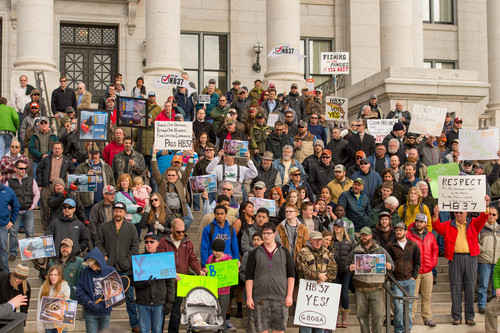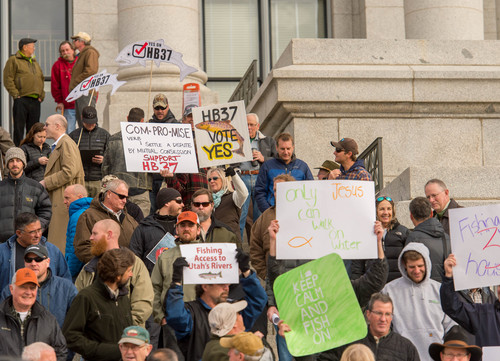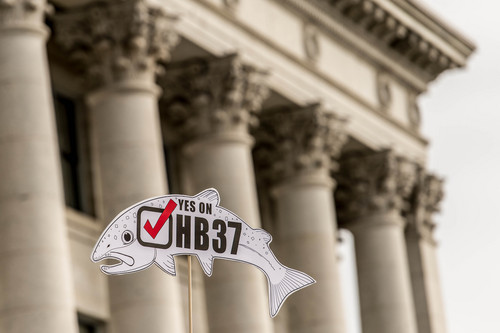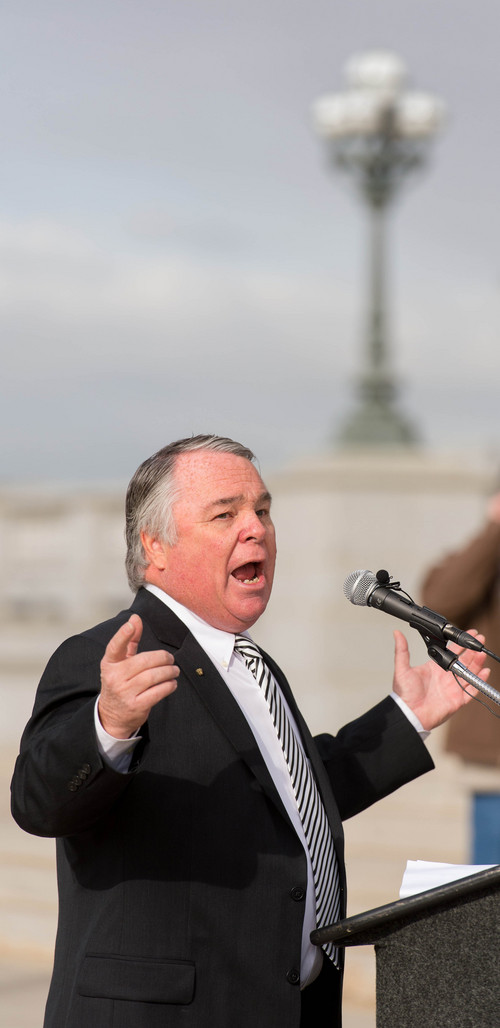This is an archived article that was published on sltrib.com in 2014, and information in the article may be outdated. It is provided only for personal research purposes and may not be reprinted.
The Legislature won't act on stream access this year, but wants to see what the courts will rule before deciding whether to bring the issue back to Capitol Hill.
During a meeting late last week with House Speaker Becky Lockhart and House Majority Whip Greg Hughes, the Utah Stream Access Coalition was told a bill sponsored by Rep. Dixon Pitcher, R-Ogden, would not make it out of the House Rules Committee.
"They basically told us that we had been upfront and straightforward and that we deserved to know that it wasn't going to leave Rules," said Kris Olson, president of the Utah Stream Access Coalition. "They said they wanted the courts to rule on it before it goes through the Legislature again."
HB37, dubbed the "Compromise Bill," drew more than 400 supporters at a rally earlier this month and seemed to be gaining legislative support.
Chris Barkey, who has led the public right stream access issue at the Capitol for years, said he was told at the meeting that HB233, sponsored by Rep. Kay McKiff, R-Richfield, would also die in rules. HB233 sought to strengthen the current law created to keep stream beds closed to the public.
"It has been worth it even if we didn't prevail," Pitcher said Monday. "It has been worth the discussion and it advances our position. I was always just hoping to find middle ground without court action required. This really could go against what the opposition wants and swing entirely the other way."
HB37 is based on a standard for public access to streams and rivers that Idaho has been successfully using for nearly four decades. The threshold is whether a stream is large enough to float a log six feet in length and six inches in diameter. Smaller streams remain off limits for public access.
Pitcher said in other Western states leaving the stream access issue to the courts ended up giving more rights to the public than are currently being sought in HB37.
The stream-access debate has been going on for decades. But it picked up steam when the Utah Supreme Court ruled in 2008 that the public owns the water in rivers and streams, and had a right to use the waters on stream beds where public access was possible.
The Legislature passed a bill in 2010 that undermined the court decision and, according to the Utah Stream Access Coalition (USAC), illegally prevented the public from utilizing 2,700 miles of rivers and streams.
Olson said it was unfortunate that HB37 never got out of Rules, but he is confident of favorable rulings on two lawsuits that will force the Legislature to deal with the stream-access issue.
"This legislative session we had an opportunity to find the middle ground, and end the stream access fight once and for all. We tried to build a foundation that protects both property rights and the public's right to use its waters," Olson said.
A final hearing on a case involving public waters is expected by early summer and the second case on navigability should start this summer.
USAC officials hope to have decisions on by the end of the year.
Twitter: @BrettPrettyman















